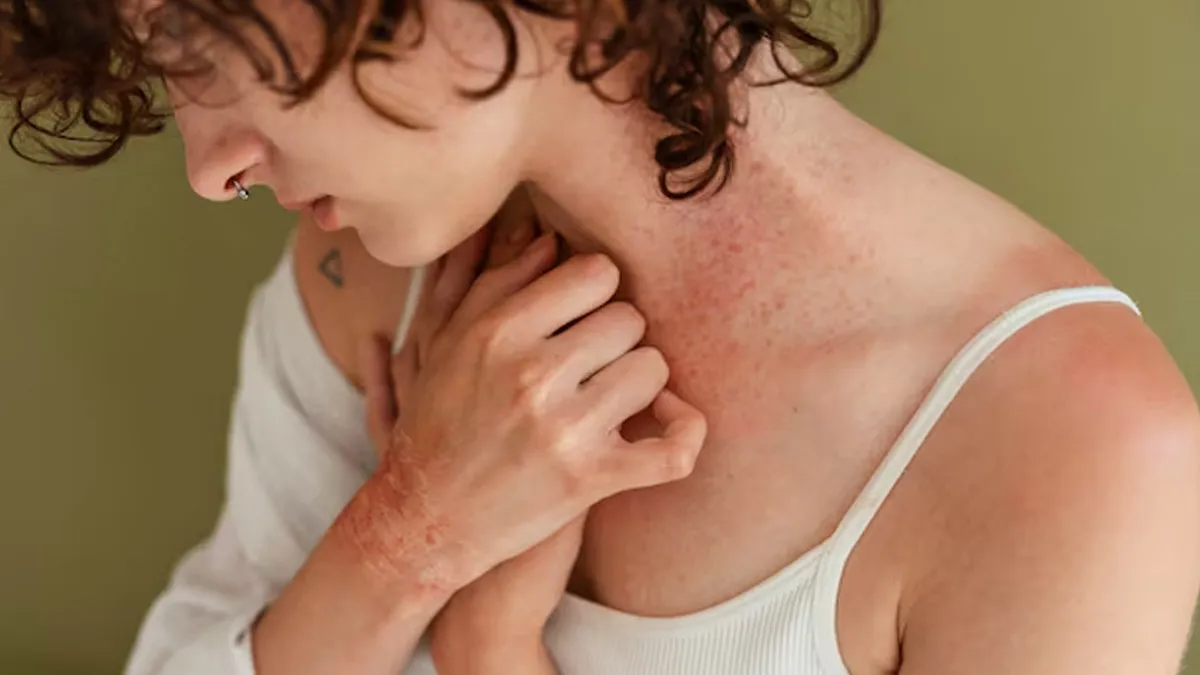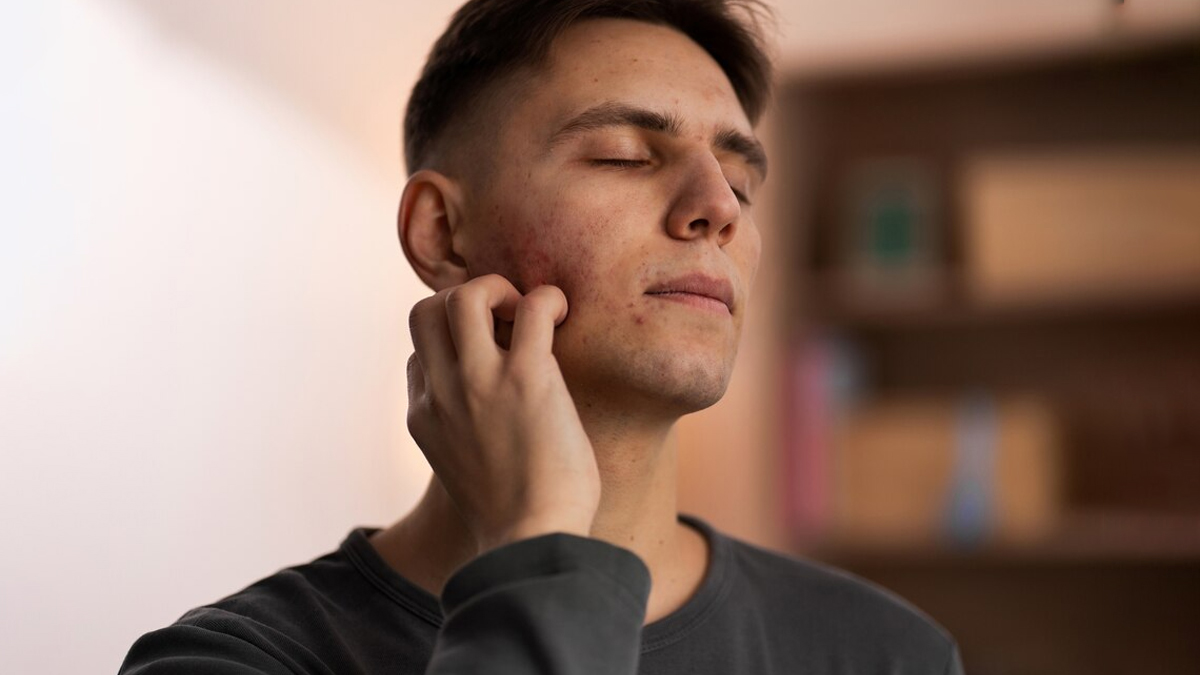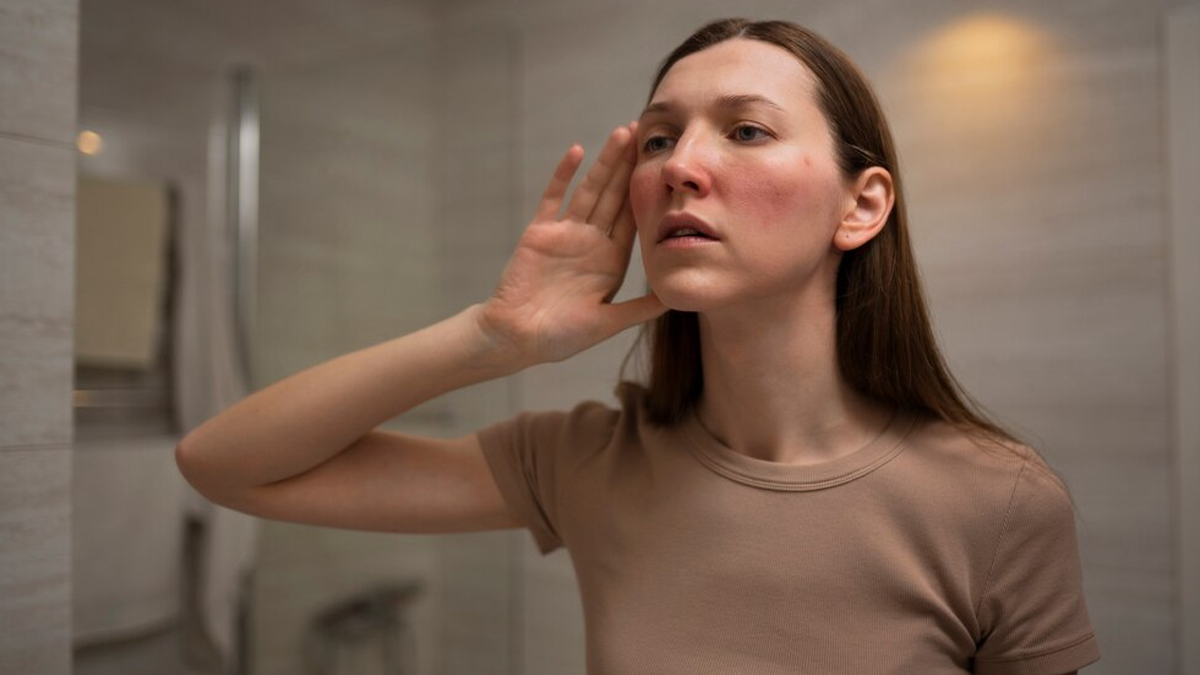
Skin rash can be caused by several factors, including stress. Stress is a natural response one has under pressure or due to a threat. It is a situation where people do not feel in control. While people have different responses to stress, such as irritability, headaches, tightness in the chest, appetite loss, and more, some people also develop skin issues, including itchy red bumps, called rashes.
Table of Content:-
If you can relate, here’s all you need to know about the link between stress and skin rash and ways to manage and/or prevent the same.
Also Read: From Boosting Immunity To Promoting Skin Health: Here Are 6 Benefits Of Patharchatta You Should Know
How Stress Triggers Rash?

Data from a 2018 study published in the Saudi Medical Journal revealed that higher stress levels were more common among older students, females, those in their fourth or fifth year, and during exam periods.
The research involving 529 medical students shared that those with higher stress levels reported more skin issues like rashes, pimples, itchy skin, hair loss, and nail-biting.
In an interaction with the OnlyMyHealth team, Dr Rashmi Naldeega, Consultant Dermatologist, Practo, Pune (who was not a part of the study), explained that stress activates the body's “fight or flight” response, releasing hormones such as cortisol, which can have a negative impact on the skin.
"Research shows that elevated cortisol levels lead to increased skin inflammation, excessive oil production, and changes in the skin's immune response," she said, adding that stress can interfere with skin healing, making it more prone to irritation.
Skin Conditions That Are Triggered By Stress

Several skin conditions are linked to stress, including psoriasis, vitiligo, atopic dermatitis, acne vulgaris, alopecia areata, urticaria, lichen planus, prurigo, seborrhoeic dermatitis, and hyperhidrosis, said Dr Naldeega.
Among the most common stress-induced conditions is atopic dermatitis (eczema), where stress exacerbates inflammation and itching, leading to frequent flare-ups. Similarly, psoriasis can worsen under stress, causing more incessant flare-ups of scaly, red patches.
The doctor added that chronic urticaria, or hives, triggered by stress-related immune changes, results in raised, itchy wheals. Stress can also lead to flare-ups of acne, resulting in increased breakouts and hair loss in the form of alopecia areata and telogen effluvium, she mentioned further.
Also Read: Do Coffee and Egg Masks Benefit The Skin? Expert Weighs In
Tips To Prevent Stress-Linked Rash

According to Dr Naldeega, some people are more likely to develop a rash triggered by stress. These include people with a predisposition to skin conditions, as stress can amplify pre-existing skin disorders.
For vulnerable groups, the doctor recommends preventing and managing stress through stress-relief practices like meditation, deep breathing, exercise, and maintaining a balanced diet.
She also advised a good skincare routine using gentle products can help in reducing flare-ups. “If a rash is persistent, severe, or accompanied by symptoms like fever or swelling, seeking medical help is recommended,” she added.
Conclusion
Stress can trigger a variety of physical and psychological symptoms. While headaches, irritability, and chest pain are some of the common outcomes, skin rash is an often overlooked consequence. For those who do experience stress-induced dermatological problems, it is advised to consult a medical professional and seek professional guidance to tackle the problem. On the other hand, it is also crucial to manage your stress and address underlying triggers.
Also watch this video
How we keep this article up to date:
We work with experts and keep a close eye on the latest in health and wellness. Whenever there is a new research or helpful information, we update our articles with accurate and useful advice.
Current Version